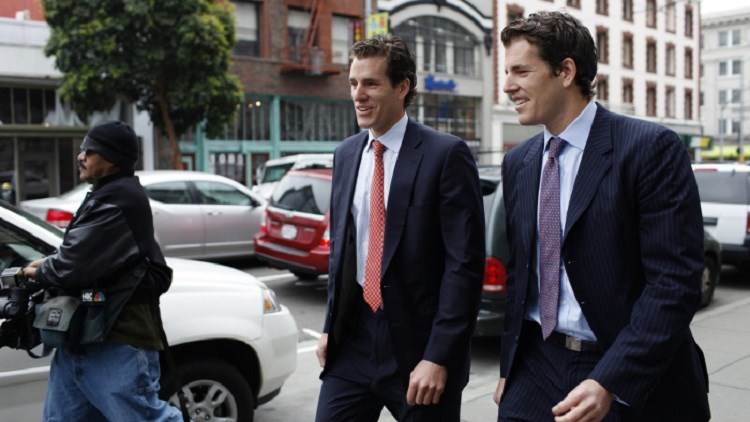A new generation of Bitcoiners is taking a different approach. They descended on London last week for a conference to discuss the currency's evolution from internet curio to serious financial instrument. "You need to show the world you're not going to try to overtake the government, you're going to take this global financial system and make it better," BitInstant founder Charlie Shrem told the Bitcoin London conference. He registered his payment system firm with FinCEN in 2011, before it had even heard of Bitcoin.
Referring to the attendees at London Bitcoin and the Winklevii as ‘a new generation of Bitcoiners"¦.taking a different approach' was not just a stretch but a complete failure to understand the Bitcoin demographic. Simply speculating on Bitcoin does not make you a Bitcoiner similarly making money from investing in Bitcoin does not automatically preclude you being a Bitcoiner. What separates the two in my opinion is that Bitcoiners are more focused around creating an improved system of finance for the betterment of society whereas speculators just treat it as an underlying to make FIAT profits. Bitcoiners and speculators co-exist within the same community, sometimes within the same person as their motivations change.
Speculators beholden to VCs are largely expressing views that have more to do with protecting their own financial interests than the long term future of Bitcoin. It is these speculators in particular who are worried about the current BTC/FIAT market sentiment that has led to the recent steady decline in leading Bitcoin/FIAT valuations leading up to the Bitcoin London event. That is why the tone of the quotes Jacob relies on seems so pro-business and seemingly at odds with the rest of the Bitcoin movement since they have most to lose by a falls in BTC/FIAT valuations. It is these members of the Bitcoin community that are more willing to provide sell out sound bites distancing Bitcoin from its crypto-anarchy (I prefer crypto-humanitarian) roots to appease US regulators. The speculators are particularly interested in placating the US Government to halt their policy of regulatory heavy handedness of Bitcoin/FIAT integration businesses.
 Photo Courtesy: Reuters/Stephen Lam
Photo Courtesy: Reuters/Stephen Lam
Jacob looks for further support from the Winklevii:
Meanwhile, Tyler and Cameron Winklevoss, who famously sued Mark Zuckerberg over the creation of Facebook, announced their plans for a $20-million fund selling shares to invest in the Bitcoin market. Buyer beware, though – the pair's filing with the US Securities and Exchange Commission warned that such an investment is not without the risk of Bitcoins being lost, stolen or completely collapsing.
The Winklevi are another type of Bitcoin speculator trying to build FIAT profits by providing exposure to the Bitcoin/FIAT price fluctuations but not the security problems. Unfortunately for Winklevi the market participants required to operate an ETF have shown little enthusiasm their ETF which has now been dubbed the ‘Winkle Wrinkle'. Personally I am not surprised they reacted this way the underlying volatility of BTC is many times that of FIAT currencies which have microsecond straight through processing trade capability whereas BTC has 10 min transaction wait time. Participants would have been exposed to the volatility one side and the slow transaction times and insecurity of the underlying on the other making market making and risk management impossible for participants. They have rightly decided that the risk was too high based on the current proposal and the Winklevi will have to go back to the drawing board. It's fair therefore to say that Winklevii ambitions are more speculative than Bitcoiner and that they see their future involvement in deploying FIAT financial products than developing purely Bitcoin orientated products (like myself).
And finally Jacob turns to the Peter Vessenes Foundation Chair for his knockout quote in support of the sellout of Bitcoiners.
Don't pay too much attention to these complaints about how Bitcoin is changing, says Peter Vessenes, chair of the Bitcoin Foundation advocacy group and Bitcoin entrepreneur. "We took the coin price from 12 to 200, and they were wrong about whether you'd ever have to engage with regulators and lawmakers." Anarchist utopian types will always have a stake, he adds. "It's very important Bitcoin stays decentralised and distributed."
The interesting thing is, Peter is now no longer the Executive Director of the Bitcoin Foundation. As announced on July 8, 2013, Jon Matonis now heads the Foundation (you can read more about this here). Is this important? Yes, because Peter was very much in the big business that was more sympathetic to US heavy regulation camp and Jon is very much in the crypto-humanitarian camp, and Jon is now the head of the foundation whereas Peter is not. If Jacob had a more in-depth knowledge of the Bitcoinsphere he would know Peter's steering of Bitcoin Foundation towards big business interests of Bitcoin speculators was very unpopular with Bitcoiners and likely left before he was pushed. You can read articles by Jon Matonis here that are very representative of his views and the likely future of the Bitcoin Foundation under his leadership. My interpretation of Jon is he is not anti-business, just anti big business and the problems that comes with it. It is no surprise to see that Bitcoin Foundation under Jon Matonis immediately launching a legal defense model similar to the Electronic Frontier Foundation. The change of guard from Bitcoin Speculator to Bitcoiner at the helm of the Bitcoin Foundation is a clear indication that Bitcoiners are not selling out as put forward by Jacob.


